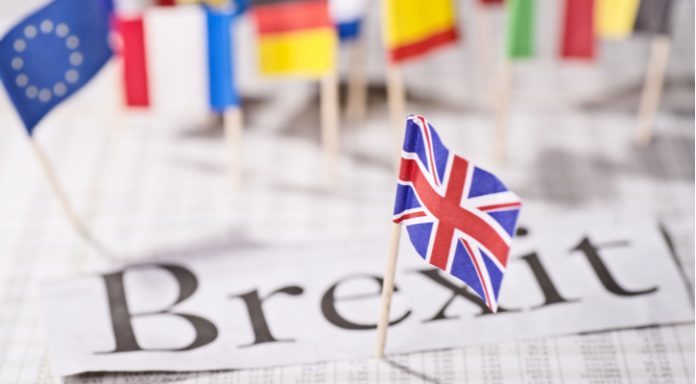A breakthrough in negotiations between the UK and the EU saw the pound climb sharply higher, to a one-month peak versus the euro. The pound euro exchange rate soared 0.7% to €1.1435, before easing back towards the close, giving back almost all the gains.
| What do these figures mean? |
|---|
|
When measuring the value of a pair of currencies, one set equals 1 unit and the other shows the current equivalent. As the market moves, the amount will vary from minute to minute. For example, it could be written: 1 GBP = 1.13990 EUR Here, £1 is equivalent to approximately €1.14. This specifically measures the pound’s worth against the euro. If the euro amount increases in this pairing, it’s positive for the pound. Or, if you were looking at it the other way around: 1 EUR = 0.87271 GBP In this example, €1 is equivalent to approximately £0.87. This measures the euro’s worth versus the British pound. If the sterling number gets larger, it’s good news for the euro. |
The pound received a boost on Monday after UK Brexit Secretary and EU Chief negotiator Michel Barnier announced that a “decisive step had been taken” as the EU and the UK agree a post Brexit transition deal. This will be a period of 21 months whereby the UK will continue abiding by EU rules, but it will have no powers in decision making.
In order to reach this agreement, the UK has essentially submitted to almost all of the EU’s demands. However, the Northern Ireland border issue remains an issue and still requires further negotiations. However, a backstop has been included, whereby Northern Ireland will remain in the single market, should no other solution be found. The market has been focussing on the transition deal for some time and although it is a temporary solution, it gives businesses time to adjust to their new reality post Brexit. The deal is not legally binding and is dependent on a Brexit deal being reached. However, it is sufficient to increase confidence that a Brexit deal will be reached, making a hard Brexit less likely.
| Why is a “soft” Brexit better for sterling than a “hard” Brexit? |
|---|
| A soft Brexit implies anything less than UK’s complete withdrawal from the EU. For example, it could mean the UK retains some form of membership to the European Union single market in exchange for some free movement of people, i.e. immigration. This is considered more positive than a “hard” Brexit, which is a full severance from the EU. The reason “soft” is considered more pound-friendly is because the economic impact would be lower. If there is less negative impact on the economy, foreign investors will continue to invest in the UK. As investment requires local currency, this increased demand for the pound then boosts its value. |
Today UK economic data is back under the spotlight. Investors will look towards UK inflation data, in the form of Consumer Price Index (CPI). Analysts are expecting CPI to have ticked lower in March to 2.8%, down from 3% in February. Weaker inflation could see the pound give up some of today’s gains.
Eurozone Economic Sentiment To Pull Euro Lower?
The euro was also in demand in the previous session, albeit less so than the pound. The euro tends to trade inversely to the US dollar and the US dollar was firmly out of favour on Monday, leaving investors searching for the euro. Furthermore, upbeat comments on consumer prices from two European Central Bank (ECB) Governing Council members Klaas Knot and Francois Villeroy de Galhau also underpinned euro strength, as investors consider the possibility of the ECB tightening monetary policy sooner rather than later.
Whilst there was no fresh data from the eurozone on Monday, today investors will look towards economic sentiment in the bloc and Germany, the powerhouse of Europe. Analysts are expecting ZEW sentiment survey for the eurozone to show a slight dip in confidence which could weigh on the euro.
|
This article was initially published on TransferWise.com from the same author. The content at Currency Live is the sole opinion of the authors and in no way reflects the views of TransferWise Inc. |





